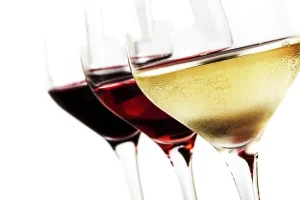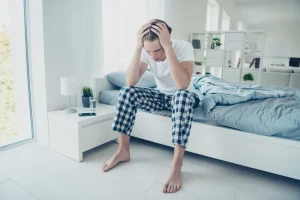‘Sober Curious’? Taking A Break From Booze Is Trendy And Helps Health : Shots Health News : NPR

Alcohol can also cause inflammation in your liver, which keeps it from doing its job well—which is clearing out toxins from your body and turning fat into energy to keep you fueled, Dr. Galligan says. “A short-term break from alcohol will allow the liver cells to recover from the persistent toxic injury from the alcohol,” Larson said. “People often use alcohol as a lubricant for emotions, and when they stop drinking they may feel https://ecosoberhouse.com/ agitated and restless,” Dr. Raskin says. Being aware that you might be feeling off can help you recognize when you are, and can help you deal with those feelings constructively (rather than just having them gang up on you without warning). Another review of 27 studies found that while alcohol may help people fall asleep more quickly and deeply at first, it seriously screws with sleep quality after that initial restful period.
You’ll have more money.

Before your planned break from alcohol, spend a week or two monitoring the amount you drink and when. Even just one bout of drinking too much may weaken your body’s germ-fighting power for up to 24 hours. Over time, large amounts of alcohol blunt your immune system and your body’s ability to repair itself. But anything more than a drink or so a day has the opposite effect, especially if you abuse or are addicted to alcohol. Irina Gonzalez is the Content Marketing Manager at Tempest, a digital membership program that empowers you to quit drinking and live alcohol-free. She is also a freelance writer covering parenting, recovery, and Latinx culture and the creator of the Pandemic Mama podcast.

The Modern Mocktail: 3 Distinctive Nonalcoholic Drink Recipes

It included just 16 people who had been in the habit of drinking about two drinks per day on average. Still, the findings were provocative, scientists say, and merit following up. Here are six ways to make that happen — and, holidays or not, you don’t need to drink to celebrate.
Can one month without drinking really open the door to change?
Unfortunately, sometimes those same people can feel judged by your changing relationship with alcohol, which is why it is important to begin by setting boundaries with the people in your life who still drink. Ultimately, this is your life and your decision, so “it’s important to consider setting boundaries, honor your recovery goals, and prioritize your needs,” says Ellinwood. “These improvements can be observed not only in people who abstain from alcohol but in people who reduce heavy drinking,” Volpicelli says. Volpicelli says that some of the negative effects of alcohol on mental health can be reversed if you stop drinking. In this article, we’ll talk about the health risks that come with drinking and the benefits of quitting alcohol. Even if you know that there are benefits to quitting alcohol, it does not mean that it’s easy to stop drinking—especially if you’ve been misusing alcohol for a long time.
- Neurotransmitters can rebound beyond their usual activity levels, which can leave you feeling anxious and irritable.
- Social media can also be a great place to start making sober friends by following hashtags such as #soberlife, #soberissexy, and #sobercurious.
- Ruddiness in your cheeks and around your nose may also start to fade, and other skin conditions—such as dandruff, eczema, or rosacea—may also improve, Dr. Raskin says.
- Think about why you are making changes to your drinking – to lose weight, feel healthier, save money, sleep better, or prevent that Sunday morning hangover.
- It’s OK in moderate amounts — which means no more than 1 drink a day for women — no more than 2 per day for men.
- The NIAA also suggests that if you don’t want to drink, prepare a response in advance to say “no” to reduce hesitation.
Stand back and ask: ‘How does drinking serve me?’
Back when he was getting sober, you either drank — or you didn’t, he says. “Those early days of abstinence from alcohol were so tough, because I had no friends,” he says. He became a substance abuse counselor to help others but found that being in recovery was often really lonely.
But these days, you don’t have to lose it all or label yourself an “alcoholic” in order to re-evaluate whether your relationship with alcohol is having a positive impact on your life. Research from 2018 showed that a month-long break from alcohol was enough for moderate-heavy drinkers to see improvements in insulin resistance, blood pressure, body weight, and cancer-related growth factors. Research shows that some damage to your brain, liver, heart, and gut done by alcohol will slowly heal when you stop drinking. While it’s true that alcohol withdrawal symptoms can be severe, they will not last forever. Once you get through that part of the process, you’ll start to feel better physically and mentally.

6 tips to help you try dry January, or taking any break from alcohol. Our leading medical providers and health coaches heal the root cause of health concerns with a personalized care plan and year-round support. Our root-cause resolution medicine has helped thousands feel better, with 85% of members reducing symptoms in their first year. Dr. Robin Berzin is the Founder and CEO of Parsley Health, America’s leading holistic medical practice designed to help women overcome chronic conditions. She founded Parsley to address the rising tide of chronic disease in America through personalized holistic medicine that puts food, lifestyle, and proactive diagnostic testing on the prescription pad next to medications.
- Those with a dependence on alcohol, or who experience alcohol withdrawal when trying to quit, should consult with a doctor for treatment and to develop a safe plan to reduce or eliminate drinking, Witkiewitz said.
- In more than 30 years of sobriety, it’s the only time I’ve had an alcoholic drink in my hand, bringing it toward my lips.
- Alcohol can chill people out after a stressful day, but ultimately it can be quite depleting.
- Find other ways to relax such as taking a bath, getting a mini massage, or adding a nightly meditation to your routine.
They’re sipping handcrafted mocktails, with names like Baby’s First Bourbon and Honey Dew Collins, featuring nonalcoholic distilled spirits. Some who have given up booze altogether join “sober sometimes” friends how to take a break from drinking to enjoy nonalcoholic drinks at Sans Bar in Austin, Texas. The best way to support your loved ones who don’t want to drink alcohol is to make sure drinking feels like a choice — not an obligation.
Your Sex Life Might Improve

“Having one glass of wine started to not provide the same effect that I was looking [for],” says listener Ash Weber. “I suppose [it was a] growing intolerance and needing more than two glasses to feel the warm and fuzzies.” If you’ve decided to take a break from drinking alcohol, you’re not alone. Breaking the booze habit, whether it’s for 30 days or longer, has its benefits. With the recent popularization of 30-day challenges like Dry January and Sober October, people are beginning to recognize that there can be benefits to cutting out alcohol for a period of time. But if you’re new to sober curiosity, you may not know where to begin thinking about your relationship with alcohol.
